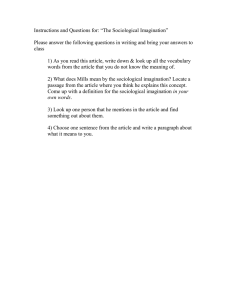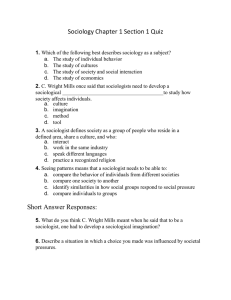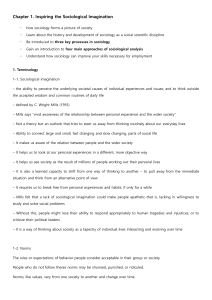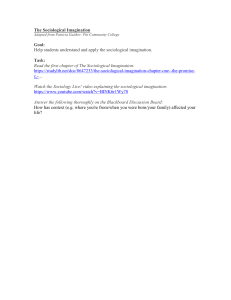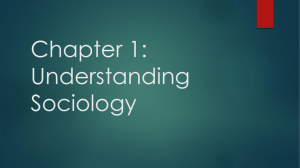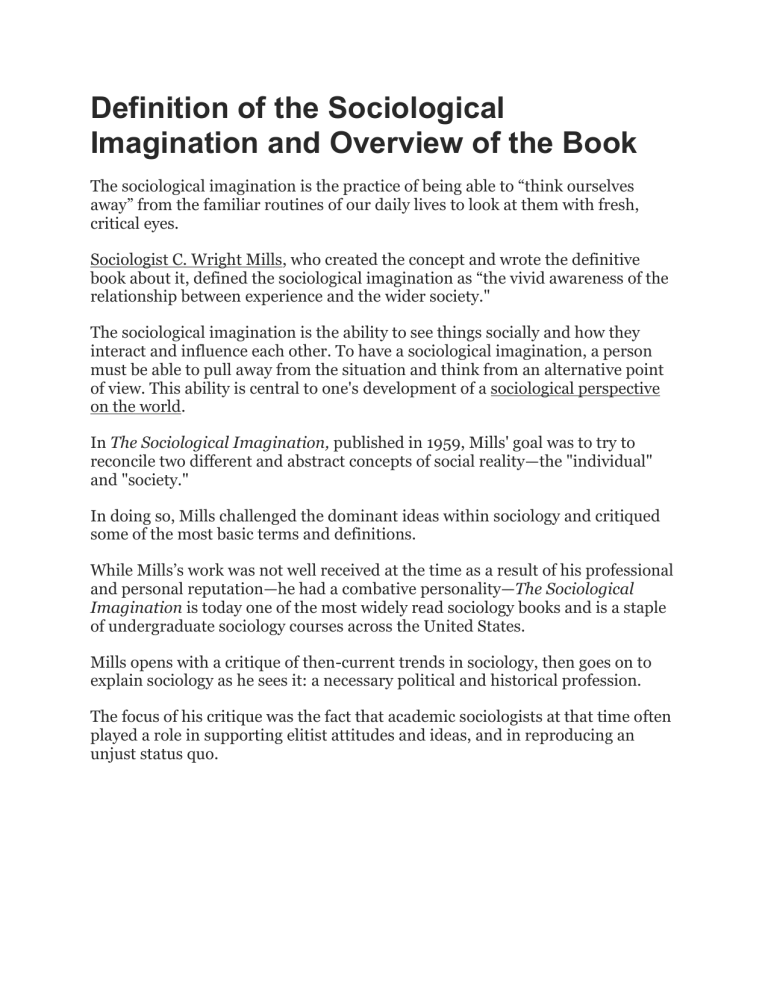
Definition of the Sociological Imagination and Overview of the Book The sociological imagination is the practice of being able to “think ourselves away” from the familiar routines of our daily lives to look at them with fresh, critical eyes. Sociologist C. Wright Mills, who created the concept and wrote the definitive book about it, defined the sociological imagination as “the vivid awareness of the relationship between experience and the wider society." The sociological imagination is the ability to see things socially and how they interact and influence each other. To have a sociological imagination, a person must be able to pull away from the situation and think from an alternative point of view. This ability is central to one's development of a sociological perspective on the world. In The Sociological Imagination, published in 1959, Mills' goal was to try to reconcile two different and abstract concepts of social reality—the "individual" and "society." In doing so, Mills challenged the dominant ideas within sociology and critiqued some of the most basic terms and definitions. While Mills’s work was not well received at the time as a result of his professional and personal reputation—he had a combative personality—The Sociological Imagination is today one of the most widely read sociology books and is a staple of undergraduate sociology courses across the United States. Mills opens with a critique of then-current trends in sociology, then goes on to explain sociology as he sees it: a necessary political and historical profession. The focus of his critique was the fact that academic sociologists at that time often played a role in supporting elitist attitudes and ideas, and in reproducing an unjust status quo.

